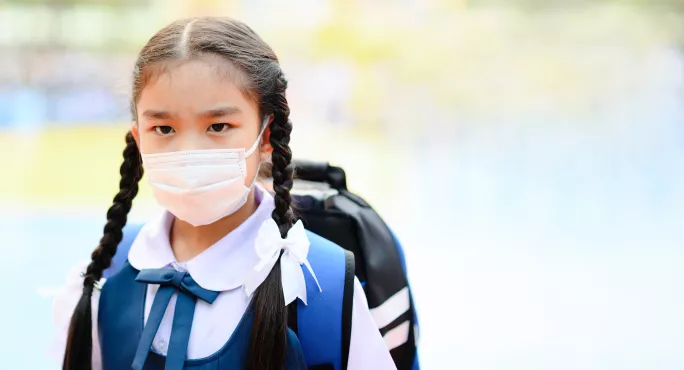Coronavirus in schools - what should teachers do?
Share
Coronavirus in schools - what should teachers do?
As if teaching weren’t stressful enough already. Teachers can’t expect to be immune from having to deal with the threat of coronavirus, which continues to dominate global headlines.
The mathematics are clear - with more cases in the UK, it follows that there is a greater chance of the disease finding its way into a school.
Trade unions and the Department for Education are naturally concerned and have been offering guidance, which is updated regularly to reflect the latest developments.
Coronavirus: Pressure mounts for mass school closures
Outbreak: Ofqual braces for exam disruption risk
Government response: DfE sets up helpline for schools
The fundamentals are simple: watch out for coughs, difficulty in breathing and a fever, all of which are characteristic symptoms. Droplets from coughs and sneezes are the likeliest means of transmitting Covid-19.
Chris Keates, acting general secretary of the NASUWT teaching union says: “As cases occur in the UK, it is also possible that more people will be required to self-isolate. It is vital that staff follow the advice of the government in this case to prevent the spread of infection.
“If a school is concerned that a pupil or staff member may be exhibiting Covid-19 symptoms, emergency advice should also be obtained.”
The key points from the DfE advice and NASUWT advice for teachers are:
-
If you are concerned that a pupil or staff member may have Covid-19, call the NHS 111 service in England, Wales or Scotland or 0300 200 7885 in Northern Ireland.
-
While awaiting advice or an ambulance, the individual should be isolated behind a shut door. Open a window for ventilation.
-
They should avoid touching people, surfaces and objects, and cover their mouth and nose with a disposable tissue when they cough or sneeze and put the tissue in the bin. If there are no tissues available, they should cough and sneeze into the crook of their elbow.
-
Schools should ensure that all washing facilities are clean, with enough soap, and encourage all staff and pupils to regularly wash their hands for at least 20 seconds.
-
Surfaces and ‘“touch points”, such as door handles and light switches, should be regularly disinfected.
-
If anyone has been in contact with a suspected case, no restrictions or special control measures are required while test results for Covid-19 are awaited. There is no need to send other learners or staff home.
-
If there has been contact with a confirmed case, then people will be asked to self-isolate at home - with their health followed up by the local health protection team.
-
If self-isolating people develop any symptoms within their 14-day observation period, they should call 111. If they become unwell with cough, fever or shortness of breath, they will be tested.
-
The DfE says the childcare or educational setting will be contacted by a health protection team to discuss any case, identify people who have been in contact with them and advise on any actions or precautions that should be taken.
-
If anyone has been in contact with a suspected case in a childcare or educational setting, no restrictions or special control measures are required while laboratory test results for the virus are awaited.
The DfE emphasises that the NHS is testing a very large number of people who have travelled back from affected countries, the vast majority of whom are testing negative.




